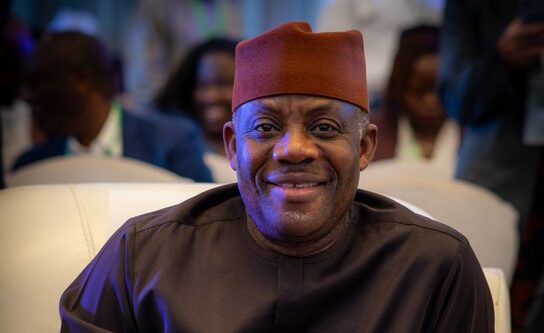To improve the Nigeria education sector, the Federal Government says that over 6,000 teachers are to be trained in an Artificial Intelligence (AI) in Pedagogy training programme after its launch.
The development aims to aid innovative, technologically driven education and enhance teaching methods across the Nigerian secondary schools.
The initiative was organised by the National Senior Secondary Education Commission (NSSEC) with the sponsorship of Google Research and supported by both Data Science Nigeria and Olabisi Onabanjo University Ogun State.
During the launching ceremony held in Abuja on Tuesday, the event witnessed the revelation of the Minimum Standards for Senior Secondary Education in Nigeria.
This framework ensures consistency, accountability, and measurable improvements across schools.
The Minister of Education, Dr. Tunji Alausa, noted that the training exercises cut across the 36 states and the Federal Capital Territory (FCT) senior secondary teachers of the country.
Alausa emphasised that it was a collective commitment to equip the teachers with the necessary skills to prepare our students for the rapidly evolving digital age.
Representing the Minister of Education, the Ministry’s Director of Basic and Secondary Education, Hajia Binta Abdulkadir, explained this initiative aligns with President Bola Tinubu’s Renewed Hope Agenda in reforming the educational sectors with advanced skills.
This initiative aims to enhance digital literacy and modernise the education system.
The Minister of Education emphasised AI’s role in shaping the future, stating, “AI is no longer a futuristic concept but a present-day reality, transforming industries, economies, and societies.”
He urged educators to embrace AI-driven teaching to enhance learning, personalise education, and develop students’ critical thinking skills.
A special training program will equip selected teachers with AI-based teaching strategies. The minister encouraged participants to embrace the training, emphasising their role in shaping a tech-savvy generation.
NSSEC boss, Dr. Iyela Ajayi, noted disparities in curriculum, teaching quality, infrastructure, and learner outcomes. “These inconsistencies have contributed to uneven access to quality education, limiting the potential of many learners,” he said.
The new standards set benchmarks for learning content, teacher qualifications, facilities, assessments, and governance.
However, the five-week training programme, structured into five modules, aims to enhance teaching methodologies.
Mohammed Salihu, Head of Teacher Development and International Partnership, stated that 130 teachers will be selected from each state and 11 from federal unity colleges.
These educators will lead AI-driven learning, preparing students for a technology-driven world.
READ ALSO: Shettima hails NEDC’s investment in education, green tech



